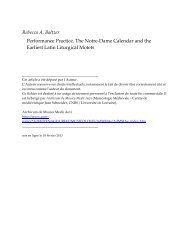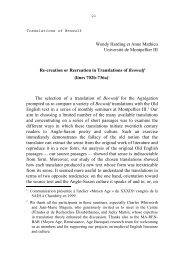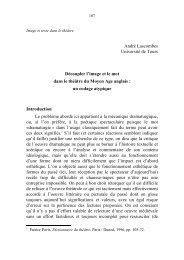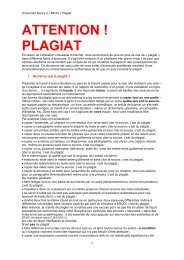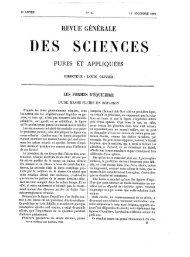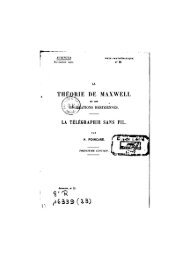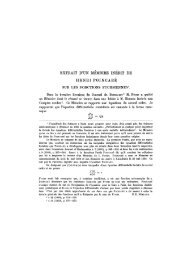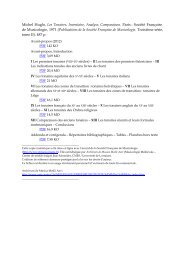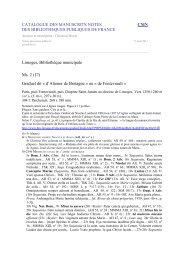You also want an ePaper? Increase the reach of your titles
YUMPU automatically turns print PDFs into web optimized ePapers that Google loves.
Lytle werede<br />
103_(12U<br />
Lytle werede: an Old English Literary Motif?<br />
Stephen Morrison<br />
<strong>Université</strong> de Poitiers<br />
The object of enquiry in the present paper is the Old English<br />
phrase lytle werede, and the discussion of its function will necessarily<br />
involve at least one other phrase of similar meaning, one showing<br />
variation in the adjective. Lytle werede is both an instrumental and<br />
dative singular construction found, with or without the preposition<br />
mid, in both poetry and prose. Its use is not especially widespread,<br />
although the attested occurrences are sufficiently numerous and their<br />
various contexts sufficiently interesting (or, in some cases, puzzling)<br />
to justify the question which forms my title.<br />
Of the adjective, little need be said save that it is the variable<br />
element in the collocation: phrases of the type *lytel here, *lytel fyrd<br />
or *lytle truman are not, as far as I know, employed by Old English<br />
writers with anything like the regularity accorded to lytel werod, if at<br />
all. 1 Of the noun werod (which I take to be the stable element in the<br />
collocation), I make two preliminary observations. Firstly, it belongs,<br />
for the most part, to the language of the battlefield in Old English:<br />
along with þreat and folc, it translates cohors (a cohort) in the<br />
eleventh-century translation of the gospels (Mark, 15:16) 2 and,<br />
although the word can stand for the notion of "multitude", "company",<br />
1 . I note, in passing, the presence of the phrase mid lytle fultume in the Old<br />
English Orosius. See Janet Bately (ed.), The Old English Orosius, Oxford:<br />
Oxford University Press (Early English Text Society [EETS] SS 6), 1980, p.<br />
68/10, cited below.<br />
2 . Roy Liuzza (ed.), The Old English Version of the Gospels: Volume One, Text<br />
& Introduction, Oxford: Oxford University Press (EETS 304), 1994, p. 94.




